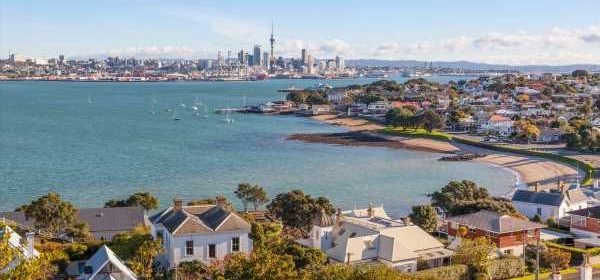Kerre McIvor: The state of the nation’s housing affordability

OPINION:
After a long and glorious summer break, it’s straight back into it and not much has changed over the past six weeks.
The topics that have dominated talkback for the first month of 2021 are still same old, same old: alarm at Covid cases in the community; concern at failures at the border; suggestions for how the MIQ team could improve security (aren’t we lucky really, though, because look at how well we’re doing compared to the rest of the world – and isn’t Jacinda marvellous) and housing unaffordability, which may not appear to be Covid-related, but actually is.
The low interest rates designed to stimulate the economy to prevent it crashing post-lockdown has resulted in a bonanza for homeowners. Their equity has soared. According to interest.co.nz’s Housing Affordability report that came out this week, homeowners made an average of $500 a day between May and December of last year, even if their home was a dunga in a crappy suburb.
Just as an aside, speaking of dungas in crappy suburbs, I heard an anecdotal story of a chap living out south, whose job involves loading logs into containers. He lived in a modest home and over the years had bought two neighbouring properties as they came onto the market.
When the developers came knocking last year, he sold all three and it was the equivalent of winning Lotto. Now he and his extended family have a lovely big house, still in the same suburb, and he drives to work to load the logs in a brand new Bentley. It was one of those dinner-party stories and I didn’t have time to verify it, but it certainly could be true.
The red-hot housing market is benefitting both those with substantial equity in their homes and those with mortgages, given the falling interest rates. But for poor old first-home buyers, it’s made getting onto the property ladder even tougher.
In Auckland, the amount needed for a 20 per cent deposit increased from $141,040 in May to $159,900 in December, while the amount needed for a 10 per cent deposit rose from $70,520 to $79,950 over the same period.
At the same time, rents have increased now the rent freeze has thawed. Gutting, if you are a focused young person on a budget who’s crunched the numbers but has the game changed on them halfway through.
That doesn’t mean it can’t be done. This week I heard truly inspiring stories from young Kiwis in their mid twenties and thirties who’d managed to buy their first homes, without the help of the bank of Mum and Dad, even though they weren’t earning big money and even though a couple of the lads had to clear personal debt before they could begin saving for their deposits. So, yes, it can be done.
And personally speaking, the fact that I haven’t bought a house yet is not because I can’t buy one, it’s more that I haven’t found one I’m in love with. I tell you what, though (does everybody else hear Judith Collins when you read or hear that phrase?), if I could find a way to work from Christchurch, I’d be there like a robber’s dog. I’ve spent a bit of time there recently, and looking at the property market there, I could buy a gorgeous old homestead on a two-hectare property with established grounds and a swimming pool, just 25 minutes from the city. And not only could I buy it, I could do so on my Eftpos card.
Or alternatively, if creaking old ladies don’t appeal to you, you could buy a brand-new build with a bit of land for around $500k-$600k. It’s all about choices and surely young tradies and professionals are eventually going to realise that they don’t have to saddle themselves with a million-dollar mortgage (albeit at very low interest rates), to buy a basic house in Auckland when they could have a home AND a life in another part of the country.
Labour made a promise that they would make housing affordability their number one priority when they formed a government in 2017 and they reiterated that when they were returned to power last year.
But I don’t think they had any idea how big the job would be and how much bigger it would get. Or that they would be in charge at a time when the gap between the haves and the have-nots has never looked wider.
Source: Read Full Article

/cloudfront-ap-southeast-2.images.arcpublishing.com/nzme/YFJP3B6FEJXQMI6L4KANNJAYU4.jpg)